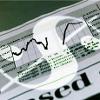- หน้าหลัก
- ชุมชน
- นักเทรดมือใหม่
- Is compounding necessary?
Advertisement
Edit Your Comment
Is compounding necessary?

forex_trader_43716
เป็นสมาชิกตั้งแต่ Aug 06, 2011
326 โพสต์
เป็นสมาชิกตั้งแต่ Oct 27, 2011
59 โพสต์
Nov 16, 2012 at 09:55
เป็นสมาชิกตั้งแต่ Oct 27, 2011
59 โพสต์
I would say that it is definitely not necessary.
Once an account gets to 200% return it can be hard to manage emotionally. Fear and greed start to come into play and it will effect your trading.
I've seen it dozens of times with the great traders that join our trading room. They go well for 3 months, then tank.
If you start with a decent bank, then just withdraw your winnings you might find that fits better with your emotional resolve.
Once an account gets to 200% return it can be hard to manage emotionally. Fear and greed start to come into play and it will effect your trading.
I've seen it dozens of times with the great traders that join our trading room. They go well for 3 months, then tank.
If you start with a decent bank, then just withdraw your winnings you might find that fits better with your emotional resolve.
Find your passion and work hard
เป็นสมาชิกตั้งแต่ Aug 22, 2012
165 โพสต์
Nov 16, 2012 at 10:24
เป็นสมาชิกตั้งแต่ Aug 22, 2012
165 โพสต์
If you're not compounding to some degree, you're making less and less as time goes on due to inflation. Compounding is the key to real wealth - ask Warren Buffet if he compounds his profits? Why limit your profits? Of course you should compound!
Nov 16, 2012 at 12:07
เป็นสมาชิกตั้งแต่ Oct 12, 2012
65 โพสต์
But to answer the question "Is compounding necessary?" it really depends on your bank.
If you have $100 to trade with and are happy with $20 in winnings per month, the question is no.
But for the 'risk of ruin'-discussions and percentages and so on - If you are trading with amounts that gives you a risk of ruin, you have to much at stake. Someone said that "you should only risk so little that it almost seems like a waste of time to trade".
Then you put the stress out and can concentrate on your way of trading.
If you have $100 to trade with and are happy with $20 in winnings per month, the question is no.
But for the 'risk of ruin'-discussions and percentages and so on - If you are trading with amounts that gives you a risk of ruin, you have to much at stake. Someone said that "you should only risk so little that it almost seems like a waste of time to trade".
Then you put the stress out and can concentrate on your way of trading.
Nov 16, 2012 at 12:43
เป็นสมาชิกตั้งแต่ May 11, 2011
219 โพสต์
Compounding is based on interest (and is derived from interest), you can't technically compound in trading, as the amount you are "compounding" is put back as risk to cover drawdown and new positions. If you mean compounding in terms of increased position sizing, you are compounding your risk, not your capital. I doubt Warren Buffet compounds his profits (I think he will chuckle if he hears that), he would use his profits to obtain investments elsewhere, called risk capital, based on a percentage of portfolio. (so he could double his risk capital - bonus! or lose it all - in which case only losing a small percentage on his entire basket of portfolios.)
For every loss there should be at least an equal and opposite profit.
เป็นสมาชิกตั้งแต่ Aug 22, 2012
165 โพสต์
Nov 16, 2012 at 13:14
เป็นสมาชิกตั้งแต่ Aug 22, 2012
165 โพสต์
FYI compounding is not necessarily derived from interest - it is the re-investment of any gain by any means to increase future returns on the initial investment.
Maybe the question should have been "Is compounding necessary to maintain your profit percentage?"
Maybe the question should have been "Is compounding necessary to maintain your profit percentage?"
เป็นสมาชิกตั้งแต่ Aug 22, 2012
165 โพสต์
Nov 18, 2012 at 21:17
เป็นสมาชิกตั้งแต่ May 11, 2011
219 โพสต์
incometrader posted:
FYI compounding is not necessarily derived from interest - it is the re-investment of any gain by any means to increase future returns on the initial investment.
Maybe the question should have been "Is compounding necessary to maintain your profit percentage?"
I seem to be at odds with everyone lately, lol. Then I stand corrected, so if using the term synonymously with the term reinvestment, I guess you could refer to it as compounding if you were to continually reinvest your gains, and your current reinvested gains were more than your previous gains. Sound correct?
For every loss there should be at least an equal and opposite profit.
เป็นสมาชิกตั้งแต่ Aug 22, 2012
165 โพสต์
Nov 18, 2012 at 23:49
เป็นสมาชิกตั้งแต่ Aug 22, 2012
165 โพสต์
xgavinc posted:
I seem to be at odds with everyone lately, lol. Then I stand corrected, so if using the term synonymously with the term reinvestment, I guess you could refer to it as compounding if you were to continually reinvest your gains, and your current reinvested gains were more than your previous gains. Sound correct?
That sounds good lol. But also you could re-invest 'some' of your profit rather then all of your profit and still be compounding (I think) I don't know anymore lol.
Nov 19, 2012 at 09:47
เป็นสมาชิกตั้งแต่ May 11, 2011
219 โพสต์
As long as it's more than the previous amount, else it wouldn't be compounding. At least that is the way I see it 😁
I agree totally with James_Bond, it's all pointless if you aren't making a consistent profit though.
I agree totally with James_Bond, it's all pointless if you aren't making a consistent profit though.
For every loss there should be at least an equal and opposite profit.
เป็นสมาชิกตั้งแต่ Jun 21, 2012
18 โพสต์
เป็นสมาชิกตั้งแต่ Dec 19, 2011
23 โพสต์
เป็นสมาชิกตั้งแต่ Oct 15, 2012
32 โพสต์

forex_trader_43716
เป็นสมาชิกตั้งแต่ Aug 06, 2011
326 โพสต์
Dec 21, 2012 at 02:50
เป็นสมาชิกตั้งแต่ Aug 06, 2011
326 โพสต์
NickMcDonald posted:
I would say that it is definitely not necessary.
Once an account gets to 200% return it can be hard to manage emotionally. Fear and greed start to come into play and it will effect your trading.
I've seen it dozens of times with the great traders that join our trading room. They go well for 3 months, then tank.
If you start with a decent bank, then just withdraw your winnings you might find that fits better with your emotional resolve.
Maybe...

forex_trader_43716
เป็นสมาชิกตั้งแต่ Aug 06, 2011
326 โพสต์
Dec 21, 2012 at 02:52
เป็นสมาชิกตั้งแต่ Aug 06, 2011
326 โพสต์
Ironman posted:
But to answer the question "Is compounding necessary?" it really depends on your bank.
If you have $100 to trade with and are happy with $20 in winnings per month, the question is no.
But for the 'risk of ruin'-discussions and percentages and so on - If you are trading with amounts that gives you a risk of ruin, you have to much at stake. Someone said that "you should only risk so little that it almost seems like a waste of time to trade".
Then you put the stress out and can concentrate on your way of trading.
It is not the "amount" that constitutes Risk of Ruin, it is the longest losing streak and the amount lost per losing trade.
Jan 11, 2013 at 08:50
เป็นสมาชิกตั้งแต่ Feb 19, 2012
1 โพสต์
If you're making consistent profits and you compound, you will enjoy compounding. If you're inconsistent and you compound, you will be shooting yourself in the foot. I have a weekly target on my account, and because my trading strategy allows me meet this 'realistic' target consistently, I compound and I am happy to do so, over and over again. Bottomline, work on your trading, remain consistent and compound.
เป็นสมาชิกตั้งแต่ May 22, 2012
104 โพสต์
Jan 14, 2013 at 05:42
เป็นสมาชิกตั้งแต่ May 22, 2012
104 โพสต์
If your R:R is 1:1 or better, its better to compound. Say if you are risking 100 pips for 20 pips profits, compounding will be disastrous. As you gain money, you will be risking more pips when you compound. Also AHPR, which myfxbook provides is a good indicator to know if you need to compound or not. But again, if you dont compound your profits/losses will be constant which is not in anybodys interest :) As a human you always want to grow :)
Feb 16, 2013 at 09:01
เป็นสมาชิกตั้งแต่ Dec 10, 2012
14 โพสต์
domgilberto1 posted:incometrader posted:
That's right your risk stays the same if your compound rate stays the same. But, if you want to reduce your risk as you grow your account, you may want to compound at a rate of 50% for example. What you're saying is fine for something like a term deposit where there is no risk, but with FOREX (as risky as it can be) it's wise to reduce risk.
I completely disagree. There is no logical reason to decreasing your risk percentage of your closing balance? If you choose 2% risk profile of your closing balance then it is always 2% of your closing balance...
Why would you decrease your risk profile on winning trades, and what, keep it in the same on losses? Or decrease it then too.... If you knew what you were talking about you`d fully understand the implications through back-testing and vigorously understanding how MM effects your bottom line through messing around with your risk profile....
I am not sure why I am even bothering explaining this or getting involved lol.
Do what AO said above^.
^^^
This
Rules of Trading: 1. Make Pips 2. Keep Pips 3. Repeat
เป็นสมาชิกตั้งแต่ May 08, 2012
316 โพสต์
Feb 16, 2013 at 13:24
เป็นสมาชิกตั้งแต่ May 08, 2012
316 โพสต์
Walloj;
Your risk is not only a measure of the percent wagered on each trade, it also depends on the systems that you trade. For the normal buy, sell, risk 2% on one trade at a time, you are absolutely correct. For the many many grid/martingale systems out there, you couldn't be more wrong. There is always the risk of the account blowing out at any time and you must transfer your closed profits out religiously until you have recaptured your initial capital.
Your risk is not only a measure of the percent wagered on each trade, it also depends on the systems that you trade. For the normal buy, sell, risk 2% on one trade at a time, you are absolutely correct. For the many many grid/martingale systems out there, you couldn't be more wrong. There is always the risk of the account blowing out at any time and you must transfer your closed profits out religiously until you have recaptured your initial capital.
War is when your government tells you who the enemy is. Revolution is when you figure out, for yourself, who the enemy is.
Feb 19, 2013 at 07:53
เป็นสมาชิกตั้งแต่ Dec 10, 2012
14 โพสต์
Michigander posted:
Walloj;
Your risk is not only a measure of the percent wagered on each trade, it also depends on the systems that you trade. For the normal buy, sell, risk 2% on one trade at a time, you are absolutely correct. For the many many grid/martingale systems out there, you couldn't be more wrong. There is always the risk of the account blowing out at any time and you must transfer your closed profits out religiously until you have recaptured your initial capital.
This is true, as well. Thank you.
Rules of Trading: 1. Make Pips 2. Keep Pips 3. Repeat

*การใช้งานเชิงพาณิชย์และสแปมจะไม่ได้รับการยอมรับ และอาจส่งผลให้บัญชีถูกยกเลิก
เคล็ดลับ: การโพสต์รูปภาพ/youtube url จะฝังลงในโพสต์ของคุณโดยอัตโนมัติ!
เคล็ดลับ: พิมพ์เครื่องหมาย @ เพื่อป้อนชื่อผู้ใช้ที่เข้าร่วมการสนทนานี้โดยอัตโนมัติ


















